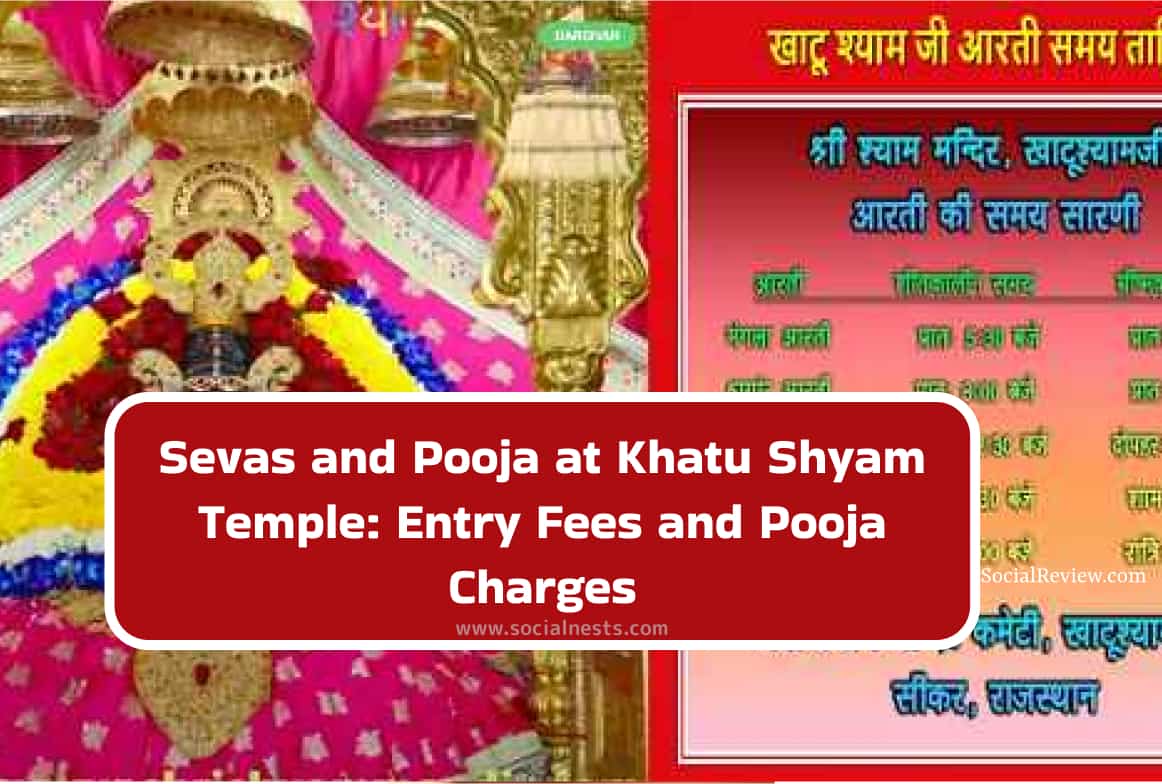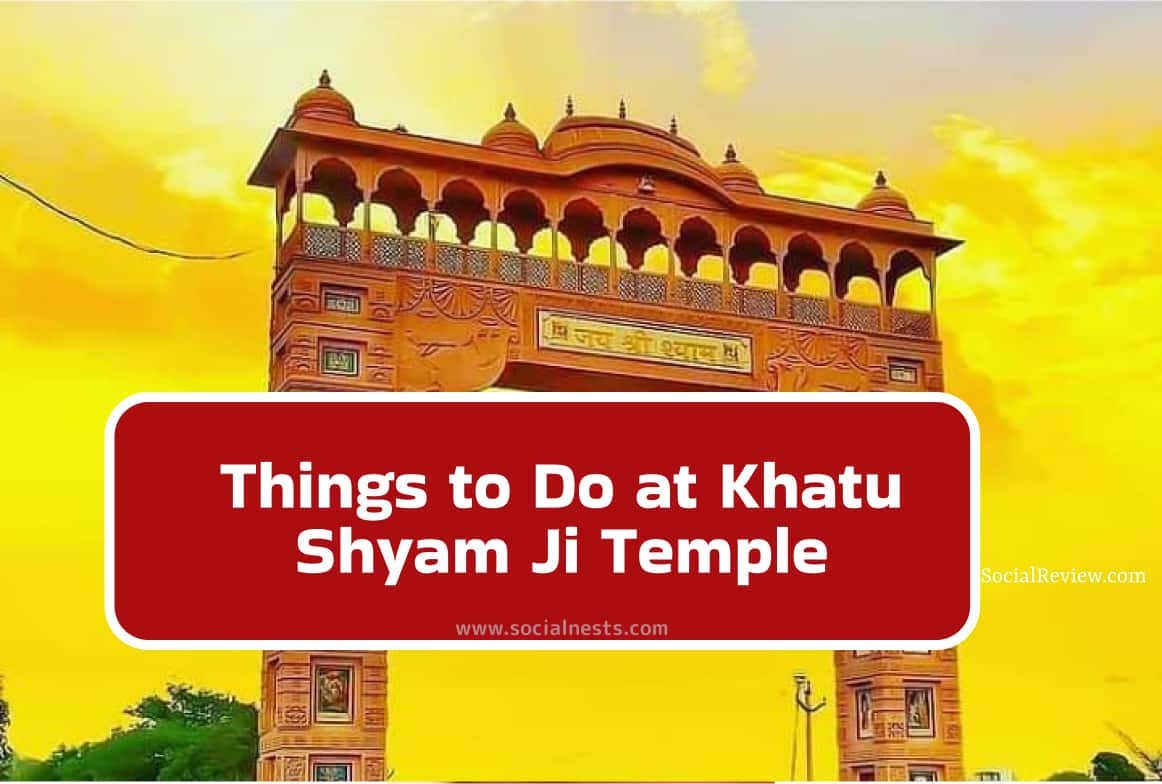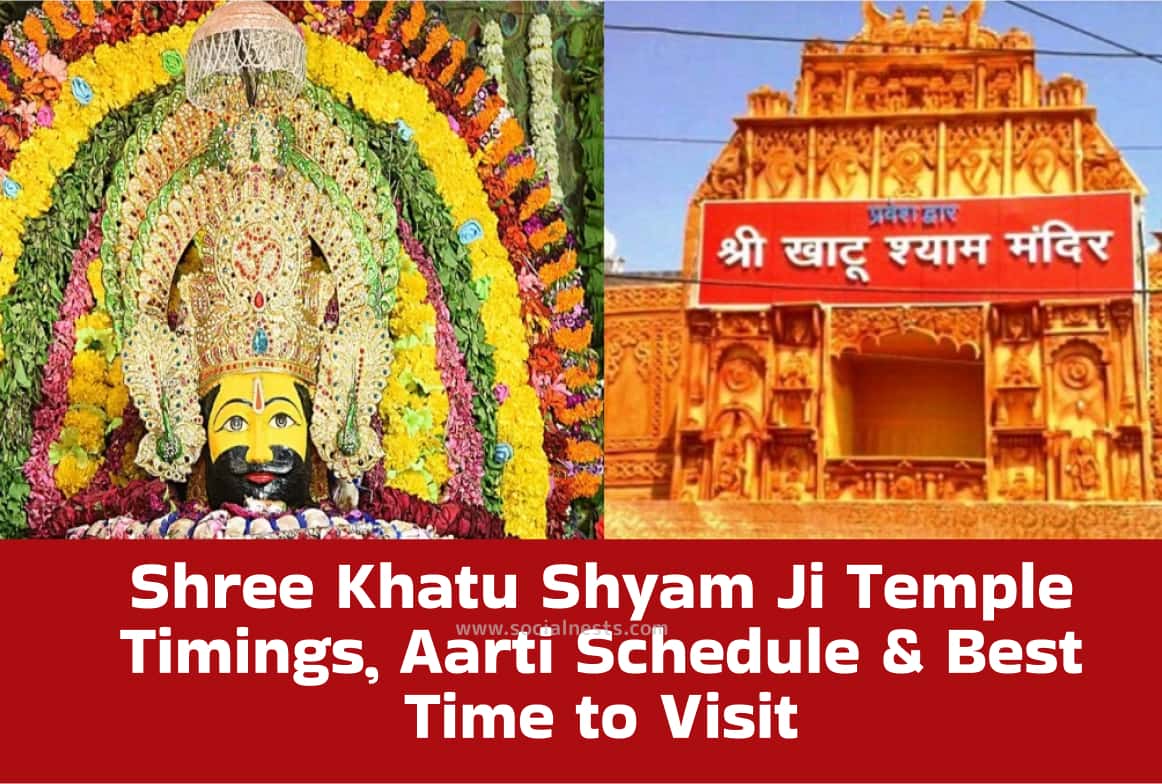Sevas and Pooja at Khatu Shyam Temple: Khatu Shyam Ji Temple, located in Sikar district, Rajasthan, is a revered pilgrimage site dedicated to Lord Khatu Shyam Ji (Barbarika). Devotees visit the temple not only for darshan but also to participate in special sevas and poojas to seek blessings. These rituals help devotees connect spiritually and attain peace.
Here is a complete guide to the sevas, poojas, timings, and charges at Khatu Shyam Ji Temple.
Sevas and Poojas at Khatu Shyam Ji Temple
The temple offers various daily poojas and aartis, some of which are free, while others require prior booking and a small donation.
1. Mangala Aarti (Morning Prayer)
- Time: 5:30 AM
- Charges: Free
- Details: This is the first aarti of the day, performed to wake up the deity and offer morning prayers.
2. Abhishek Pooja (Holy Bath Ritual)
- Time: 6:00 AM – 12:00 PM
- Charges: ₹501
- Details: This pooja involves the ritualistic bathing of the idol with milk, curd, and holy water, followed by chanting of Vedic hymns.
3. Bhog Pooja (Food Offering Ritual)
- Time: 12:00 PM – 1:00 PM
- Charges: ₹101
- Details: In this ritual, food (bhog) is offered to Lord Khatu Shyam Ji before being distributed among devotees as prasad.
4. Rajbhog Pooja (Royal Meal Offering)
- Time: 2:00 PM – 3:00 PM
- Charges: ₹201
- Details: This pooja involves offering an elaborate meal to the deity, symbolizing royal treatment.
5. Sandhya Aarti (Evening Prayer)
- Time: 6:00 PM
- Charges: Free
- Details: This aarti marks the transition from day to night and fills the temple with devotional energy through bhajans and chanting.
6. Shayan Aarti (Night Prayer)
- Time: 8:00 PM
- Charges: Free
- Details: This is the last aarti of the day, performed before closing the temple. It signifies offering prayers before the deity rests for the night.
Entry Fees and Pooja Charges
| Seva/Pooja | Timing | Charges |
|---|---|---|
| Mangala Aarti | 5:30 AM | Free |
| Abhishek Pooja | 6:00 AM – 12:00 PM | ₹501 |
| Bhog Pooja | 12:00 PM – 1:00 PM | ₹101 |
| Rajbhog Pooja | 2:00 PM – 3:00 PM | ₹201 |
| Sandhya Aarti | 6:00 PM | Free |
| Shayan Aarti | 8:00 PM | Free |
Note: Charges may change based on temple management decisions. It is recommended to check with the official temple administration before your visit.
How to Book Sevas and Poojas at Khatu Shyam Ji Temple?
To participate in special poojas, follow these steps:
- Visit the Temple Premises:
- Booking for Abhishek Pooja, Bhog Pooja, and Rajbhog Pooja can be done at the temple office.
- Online Booking:
- Some temples offer online seva booking through their official website or trusted portals.
- Check Availability:
- Some rituals have limited slots, so it is advisable to book in advance, especially during festivals.
- Donation Receipt:
- Always collect a receipt for any donation or seva booking.
Conclusion
Khatu Shyam Ji Temple offers various sevas and poojas to help devotees experience spiritual peace and divine blessings. While some aartis are free, special poojas require prior booking and a nominal fee. If you are visiting the temple, make sure to plan accordingly to participate in these sacred rituals.
FAQs
1. What are the free poojas and aartis at Khatu Shyam Ji Temple?
The Mangala Aarti, Sandhya Aarti, and Shayan Aarti are free for all devotees.
2. How much does Abhishek Pooja cost at Khatu Shyam Ji Temple?
The Abhishek Pooja costs ₹501 and is performed from 6:00 AM to 12:00 PM.
3. Can I book poojas online at Khatu Shyam Ji Temple?
Some temples offer online booking, but it is best to confirm with temple authorities or visit the temple office for direct booking.
4. What is the significance of Bhog Pooja?
Bhog Pooja is a food offering ritual where devotees present food to Lord Khatu Shyam Ji before it is distributed as prasad.
5. What is the best time to visit Khatu Shyam Ji Temple?
The temple is open year-round, but the best time to visit is during early morning or evening aartis and during festivals like Phalguna Mela and Navratri.



